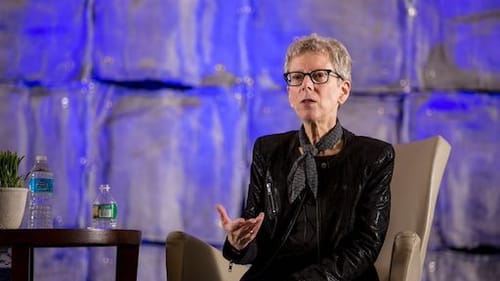Stay in the Loop
BSR publishes on a weekly schedule, with an email newsletter every Wednesday and Thursday morning. There’s no paywall, and subscribing is always free.
The missing ingredient at WHYY
WHYY’s Bill Marrazzo problem

Stop the presses. “WHYY chief paid more than peers in public media,” announced the Philadelphia Inquirer’s front page on Saturday. The story reported that William J. Marrazzo, president and chief executive of Philadelphia’s public TV/radio outlet since 1997, had received $757,164 in total compensation in 2015, tops among his public TV peers in Boston, Washington, and Dallas, “as WHHY added to a run of profitable years while the others posted losses.”
To which you might well ask: What else is new? And why shouldn’t the head of a not-for-profit organization be rewarded for turning a profit? Especially when his TV station delivers stimulating programming, hard-hitting journalism, and, y’know, provocative criticism that keeps millions — OK, hundreds — of Philadelphians glued to their sets…
Never mind.
Passion but not money
As local grouches like the Inquirer, Philadelphia magazine, and yours truly have pointed out for years, Marrazzo makes more money than just about anyone in public broadcasting while delivering much less. If you’re looking for balanced budgets, Bill Marrazzo is your man. But if you’re looking for a quality alternative to commercial broadcasting — the presumed mission of public radio and TV — you'd best look elsewhere.
As print journalism has declined in the face of Internet competition, many dedicated journalists, armed with passion if not money, have struggled to fill the gap. Increasingly these days, journalism is going the nonprofit route, with sites like the Pulitzer Prize-winning newsroom ProPublica.org; the Marshall Project, a site that focuses on the criminal justice system; the Center for Investigative Reporting; and the Tampa Bay Times, which has operated for decades under the nonprofit Poynter Institute For Media Studies. Philadelphians can turn to not-for-profit sites such as Billy Penn, Hidden City Philadelphia, the Philadelphia Citizen, and of course, Broad Street Review. WHYY, by contrast, has hundreds of employees and an annual budget of more than $30 million, but no apparent motivation to fill the void left by the for-profit sector — which was, after all, the original justification for public broadcasting.

Not until 2008 — more than 10 years after Marrazzo arrived — did WHYY pay serious attention to journalism, with the hiring of former Inquirer editorial page editor Chris Satullo to run its bland newsworks.org. Satullo was dismissed in 2015 for reasons that remain unclear.
To be sure, WHYY radio is well known for its national interview shows Fresh Air, hosted by Terry Gross, and Radio Times, hosted by Marty Moss-Coane, but both of those predate Marrazzo’s tenure.
The smell test
You can’t blame Marrazzo alone for his priorities. Marrazzo’s pay raises, as WHYY’s then-chairman Jerry Sweeney explained in 2008, were determined by “a very specific set of metrics . . . things like increasing audience share, converting to digital technology, and bringing the budget into line.”
As I pointed out in BSR back then, “In their negotiations with Marrazzo, the WHYY trustees have cluttered their minds with a series of bureaucratic tests to justify Marrazzo’s pay package while blithely ignoring the only test that really matters: the 'smell test.'”
Not much has changed since then. According to Saturday’s Inquirer, the WHYY board now sets Marrazzo’s compensation “with the help of a consultant who creates an index of pay at public media organizations, nonprofit educational institutions, and cultural organizations in the Philadelphia region, such as the Philadelphia Museum of Art and the Philadelphia Orchestra.”
Unique combination
Do you get the feeling that nobody at WHYY read my column back in 2008? Or could it be that WHYY’s directors, lacking a financial stake in the operation, have little incentive to engage in hard-nosed bargaining with Marrazzo? Or both?
The Philadelphia Museum of Art and the Philadelphia Orchestra are world-class institutions — that is, they attract a global clientele. WHYY has never been mistaken for a world-class operation. Is there no consultant capable of pointing that out?
Let the record show that Marrazzo’s rare combination of connections in municipal government (he was Philadelphia’s water commissioner), in business (he was CEO of Roy F. Weston Inc., an environmental consulting firm), and Philadelphia’s cultural community (his wife, soprano Randi Marrazzo, is a co-founder of Lyric Fest) renders him a potentially valuable civic resource. Let the record also show he’s a superb fundraiser, as he has demonstrated at WHYY for nearly 20 years. But the critical question remains: to what purpose?
Sign up for our newsletter
All of the week's new articles, all in one place. Sign up for the free weekly BSR newsletters, and don't miss a conversation.

 Dan Rottenberg
Dan Rottenberg